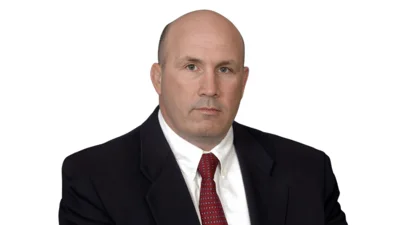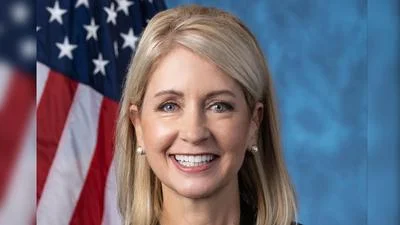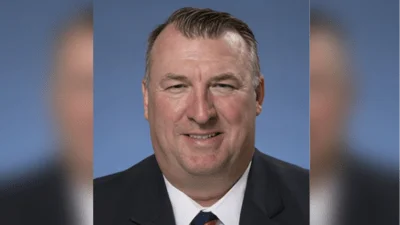Now-Illinois Gov. J.B. Pritzker, shortly after his primary win in March of last year | twitter.com/JBPritzker
Now-Illinois Gov. J.B. Pritzker, shortly after his primary win in March of last year | twitter.com/JBPritzker
Inexperience likely led to Gov. J.B. Pritzker's gaffe last week when he claimed GOP lawmakers had participated in a compromise to raise the state's minimum wage, the head of the Republican Party in Champaign County said today.
Compromise takes on a particular meaning in the political sphere Pritzker has entered, Mark Ballard said during a Chambana Sun email interview.
"Given that Pritzker is new to his position, I'll chalk it up to not understanding the difference between compromise, where ideas from both parties are incorporated into policy, and recommendations by the minority party to minimize the negative impact of bad policy," Ballard said.

Champaign County Republican Party Chairman Mark Ballard
| Photo courtesy of Mark Ballard
Meanwhile, all eyes are on the upcoming debate about the bill in the House and what House Speaker Michael Madigan (D-Chicago) might do now that the push to raise Illinois' minimum wage to $15 an hour has made it through the Senate.
"Once in the State House, whatever law leader Madigan wants passed will be passed out of the House," Ballard said. "After that, the Senate will accept Madigan's House version and Pritzker will sign it into law—all along party lines."
Last week, an Illinois Republican Party spokesman called out Pritzker for "misleading" Illinoisans by claiming the minimum wage plan making its way to his desk was "the product of compromise and Republican input, even though no Republicans support it."
Pritzker's comments about what Republicans say is a nonexistent compromise with GOP lawmakers over the minimum wage came days after the Senate voted 38 to 18, largely along party lines, to raise the minimum wage over six years.
It was not the first time something Pritzker said has raised brows. A little more than a year ago, when the then-first-time political candidate was still on the campaign trail, Pritzker came under fire for comments he made about African American elected officials in an FBI-taped phone conversation he had with Rod Blagojevich in 2008, when Blagojevich was governor. Blagojevich is now in prison.
Ballard said he is interested in what the minimum wage increase will do to Illinois, and he recommended taking a close look at what a similar increase has done to a large U.S. Pacific Northwest city. Seattle's minimum wage for the city's largest employers went up to $16 per hour earlier this year.
"To analyze what should happen, you only need to look at Seattle that already enacted an elevated minimum wage law," Ballard said. "There, many small businesses closed and people who already live on the edge were out of work due to the increase."
The Seattle increase also led to more jobs in small businesses—but not in a good way, Ballard said.
"Many small businesses moved to change full-time jobs into two part-time jobs so they didn't have to pay benefits on top of the excess salary that their business could not sustain, thereby leaving workers worse off than before," he said.
Seattle consumers also are suffering, Ballard said.
"All remaining impacted businesses were forced to raise their prices, negatively impacting all citizens and thereby offsetting the impact of the increased wage," he said.
Illinois needs to take a lesson from what has happened in Seattle and not get too tied up in what a certain first-time candidate promised on the campaign trail, Ballard said.
"The elevated minimum wage is simply bad economic policy wrapped in a feel-good political promise," he said. "The politicians and activists that promote it give false hope to people who are economically stressed but ... they gain politically."
There is a better way, Ballard said.
"The real solution for Illinois is increased economic growth, a business-friendly government, sensible tax policy and a focus on the people of our state—not on policies that promote the Illinois Democratic machine at the expense of those citizens most vulnerable," he said.






 Alerts Sign-up
Alerts Sign-up